Job Field

How can we prepare for the changing job landscape in the future ?
The future job landscape is constantly evolving, and it's important to stay ahead of the curve. Here are some ways to prepare for the changing job landscape: 1. **Continuous Learning**: Upskill or reskill to remain relevant in the job market, take advantage of online courses, and attend workshops and seminars related to your field. 2. **Adaptability**: Embrace change, be open to new ideas, and be flexible in your job search. 3. **Networking**: Build professional relationships, attend events, join professional organizations, and connect with people on platforms like LinkedIn. Conduct informational interviews with professionals in your field. 4. **Technology Proficiency**: Stay tech-savvy and familiarize yourself with popular tools and software used in your industry. Consider learning basic coding skills. 5. **Personal Branding**: Establish an online presence through platforms like LinkedIn, Twitter, and personal websites. Showcase your expertise by publishing articles and participating in discussions. By focusing on these areas, you can position yourself for success in the ever-evolving job market.

How does automation affect job security ?
Automation affects job security by increasing efficiency, causing job displacement, creating a skill gap, and generating new job opportunities. To mitigate its effects, individuals should continuously learn and adapt, while organizations should offer reskilling programs and implement progressive policies.
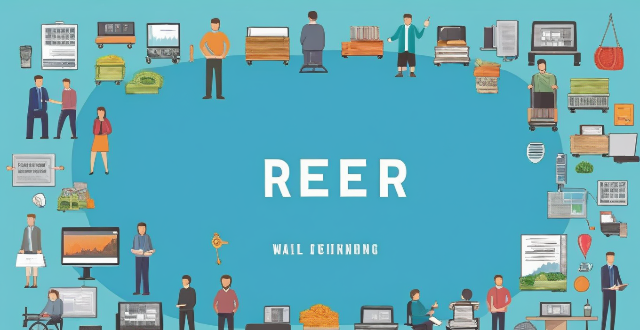
How can we ensure job security in an ever-changing employment landscape ?
In the ever-changing employment landscape, job security is a concern for many professionals. To maintain job security, strategies such as continuous learning, adaptability, networking, performance orientation, personal branding, career planning, financial planning, and mental health management are recommended. These approaches can help professionals stay relevant, demonstrate value, build a positive image, set clear goals, save for emergencies, manage stress, and seek support when needed. By implementing these strategies, individuals can increase their resilience and adaptability, enhancing their job security.

How can I build a strong knowledge framework in my field of study ?
To build a strong knowledge framework in your field of study, follow these steps: define your goals, conduct research, build a foundational understanding, connect ideas and concepts, apply your knowledge, and continuously learn. By doing so, you'll be able to think critically, solve complex problems, and contribute to the advancement of your field.

How has social distancing impacted the economy and job market ?
Social distancing measures have had a significant impact on the economy and job market, including decreased consumer spending, supply chain disruptions, high unemployment rates, increased demand for remote work, and changes in job seeking behavior.

How will AI impact the job market in the future ?
The impact of AI on the job market is multifaceted. While it brings opportunities for increased efficiency and novel professions, it also presents challenges related to job displacement, skill shifts, inequality, and the need for adaptive policies. The future of work in an AI-driven world will require a collaborative effort from individuals, businesses, and governments to navigate these changes effectively.

How do I find scholarships specific to my field of study ?
Finding scholarships specific to your field of study can be a challenging task, but it is definitely worth the effort. Here are some steps you can take to find scholarships that match your academic interests and career goals: 1. Research your field thoroughly to identify key organizations, associations, and institutions that offer scholarships related to your area of interest. 2. Use online scholarship search engines such as Fastweb, ScholarshipOwl, and Cappex to find scholarships based on your academic achievements, extracurricular activities, and career goals. 3. Check with your school's financial aid office for information about scholarships specific to your field of study and resources such as scholarship databases or lists of local organizations that offer scholarships. 4. Attend scholarship workshops and events hosted by your school or local community organizations to network with professionals in your field and learn about scholarship opportunities. 5. Contact professional organizations and associations in your field directly to find out about available scholarships and application requirements.
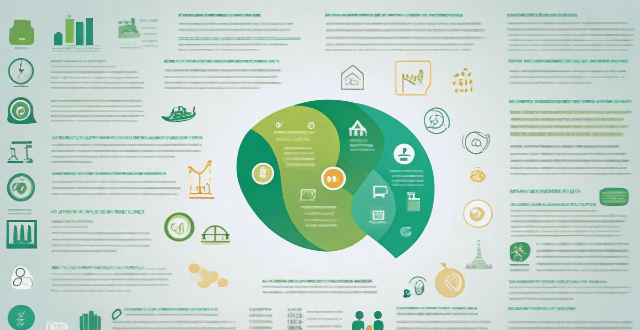
How will climate change influence future job markets ?
The article discusses how climate change will influence future job markets. It highlights the increased demand for green jobs, a shift toward resilient industries, and potential declines in certain sectors that contribute to greenhouse gas emissions or rely heavily on fossil fuels. Additionally, remote work opportunities may rise due to extreme weather events and environmental concerns. The article concludes by emphasizing the need for individuals and organizations to adapt to these changes in the job market.

How does climate change influence job security in coastal regions ?
Climate change significantly impacts job security in coastal regions through direct effects such as sea level rise, increased storm intensity, and changes in ocean temperatures. These environmental changes directly affect industries like fishing, tourism, agriculture, and infrastructure, leading to job losses or reduced hours for employees. Indirectly, climate change can cause economic displacement, public health concerns, and policy changes that create new job opportunities while potentially reducing jobs in other sectors. Addressing these challenges requires coordinated efforts from various stakeholders to adapt to changing conditions and transition towards more resilient economic systems.
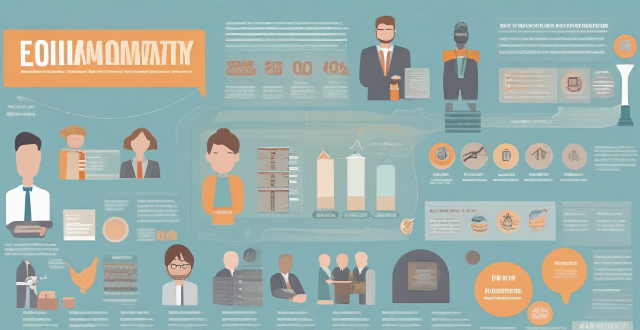
How does private equity impact job creation and retention ?
Private equity (PE) has a significant impact on job creation and retention, primarily through investing in underperforming companies, supporting startups and small businesses, and engaging in strategic acquisitions and mergers. PE firms also contribute to job retention by providing stable funding, investing in employee training programs, and participating in succession planning. While some argue that PE prioritizes short-term profits over long-term job growth, others contend that PE plays a crucial role in promoting economic stability and workforce development.
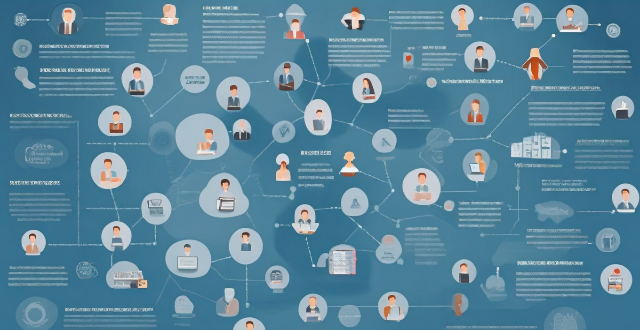
How might a lunar base influence the global economy and job market ?
The establishment of a lunar base could significantly impact the global economy and job market by increasing investment in space technology, creating new industries, driving innovation, and fostering international collaboration. It could also create numerous job opportunities and expand educational opportunities focused on space-related disciplines.

What are the job prospects for fitness instructors ?
The fitness industry is experiencing steady growth, driven byThe fitness industry is experiencing steady growth, driven by of regular exercise, rise in This growth has led to a rise in job opportunities for fitness instructors across various settings such as gyms, corporate wellness programs, community centers, and online platforms. Fitness instructors can also expect career growth through specialization, certification, management, or entrepreneurship. Overall, the job prospects for fitness instructors are promising with numerous opportunities for career advancement.

How do climate goals affect the economy and job market ?
Climate goals, aiming to reduce greenhouse gas emissions and promote renewable energy sources, significantly impact the economy and job market. The growth of the renewable energy sector creates new business opportunities and jobs, while carbon pricing mechanisms incentivize companies to invest in cleaner technologies. Green infrastructure investments stimulate economic growth by creating jobs and improving public health. However, achieving climate goals can also displace workers in fossil fuel-dependent industries, necessitating support and training programs for transitioning into new roles within the green economy. Education and training focused on sustainability and renewable energy are crucial to meet the demands of the changing job market. Overall, prioritizing climate goals presents challenges but also offers numerous opportunities for economic growth and job creation in industries related to sustainability practices.
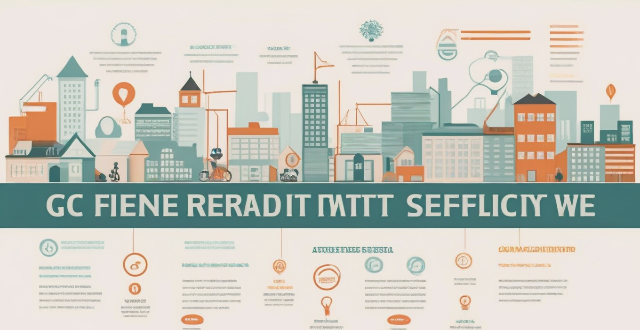
How do exercise programs impact employee productivity and job satisfaction ?
Exercise programs have a significant impact on employee productivity and job satisfaction. Companies can improve employee health, reduce stress levels, enhance team building, increase energy levels, improve mental clarity and cognitive function, reduce absenteeism and tardiness, enhance work-life balance, increase motivation and engagement, and improve company culture and retention rates by promoting a healthy lifestyle and providing opportunities for physical activity. Implementing exercise programs should be considered a valuable investment for any organization looking to improve its overall performance and success.

How can I transition into a new career field or industry ?
Transitioning into a new career field or industry requires careful planning, research, and a willingness to learn new skills. To make the transition smoother, assess your skills and interests, research potential careers, gain relevant experience through courses, certifications, volunteering, or part-time jobs, update your resume and cover letter, and apply for jobs while preparing for interviews. By following these steps, you'll be well-prepared to make a successful transition into an exciting new chapter of your professional life.

How does a sedentary lifestyle affect job productivity and overall health ?
This article discusses the negative impacts of a sedentary lifestyle on job productivity and overall health. It outlines how prolonged periods of sitting can lead to decreased energy levels, impaired cognitive function, and increased stress and anxiety in the workplace. It also highlights the increased risk of chronic diseases such as heart disease, diabetes, and obesity, as well as musculoskeletal issues and poor mental health associated with a sedentary lifestyle. The article concludes by emphasizing the importance of incorporating regular physical activity into daily routines and maintaining a healthy work-life balance to improve job performance and overall well-being.

How does Fintech influence the job market in the finance industry ?
The influence of fintech on the job market in the finance industry has led to the creation of new roles and changes in the skillset required for existing positions. Fintech companies have increased demand for software developers, data scientists, and cybersecurity experts. Additionally, specialized financial roles like fintech startup founders, regulatory compliance officers, and customer experience managers have emerged. Traditional finance roles such as bankers, accountants, and investment advisors now require proficiency in digital tools and an understanding of automation and data analytics. As technology continues to advance, the finance industry workforce will need to adapt continuously to stay relevant in the changing job market.
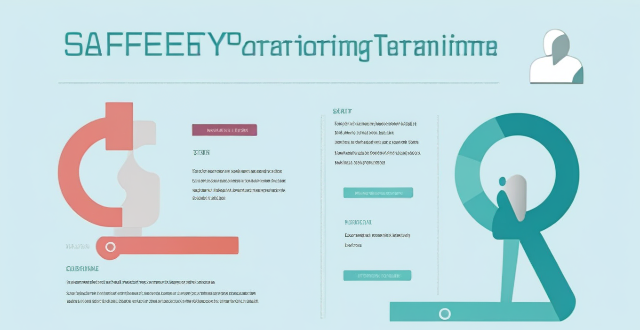
How can personal safety training be tailored to different risk levels and job roles within an organization ?
Personal safety training is crucial for protecting employees. Tailoring this training to different risk levels and job roles ensures that each employee receives the specific knowledge and skills needed for their work environment. This involves identifying risk levels, defining job roles, developing tailored training programs, incorporating practical exercises, and continuously updating and evaluating the training's effectiveness.

What types of sports offer the most job opportunities for coaches ?
Sports coaching is a popular career option for many individuals. It offers the opportunity to work with athletes, help them improve their skills, and achieve their goals. However, not all sports offer the same level of job opportunities for coaches. In this article, we will explore the types of sports that offer the most job opportunities for coaches.
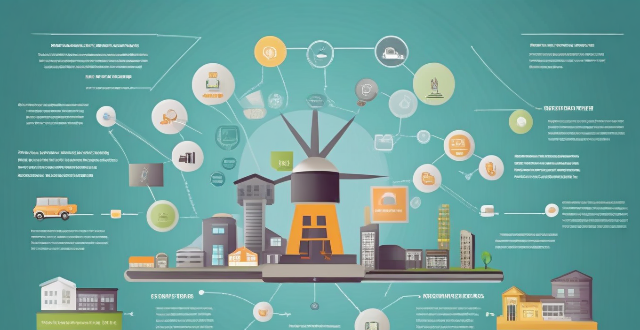
What impact does energy transition have on employment and job creation ?
The energy transition from fossil fuels to renewable sources significantly impacts job creation and employment. This shift brings growth in renewable energy sectors, green economy expansion, research & development, infrastructure development, and energy efficiency services. However, it also causes employment shifts such as a decline in fossil fuel industries, skill transition, geographical impact, supply chain effects, and policy-driven changes. Managing these challenges through strategies like reskilling programs and supportive policies is crucial for a just and equitable energy future.

How do communication satellites impact the field of telecommunications ?
Communication satellites have revolutionized telecommunications by providing global connectivity, increasing bandwidth, and improving reliability. They allow for communication across vast distances, connecting remote areas with the rest of the world and providing access to telecom services in regions lacking terrestrial infrastructure. Modern satellite systems offer high data rates for faster internet speeds and better voice/video transmissions, supporting multiple services like voice, data, and video conferencing. Satellites also enhance reliability and redundancy as critical backups during disasters and emergencies, creating diverse communication pathways. With rapid deployment capabilities, satellites are ideal for temporary situations like military operations or emergency responses and enable mobile applications. Economically, advancing technology reduces costs, opens new markets, and fosters job creation. Technological advancements include improved modulation techniques and antenna designs for better performance. Environmental considerations involve space debris mitigation and energy efficiency. Overall, satellites significantly impact telecommunications by extending reach, increasing capacity, ensuring reliability, offering flexibility, driving economic growth, and fostering technological advancements while considering environmental implications.

How will automation affect employment in the coming years ?
Automation is expected to have a significant impact on employment in the coming years, with potential job displacement and income inequality challenges. However, it also presents opportunities for job creation and a shift towards more creative and analytical roles. Skills such as creativity, critical thinking, and emotional intelligence will become increasingly valuable, while continuous learning and adaptability will be crucial for workers to stay relevant. Policy interventions are necessary to mitigate inequality and support an adaptable and resilient workforce.
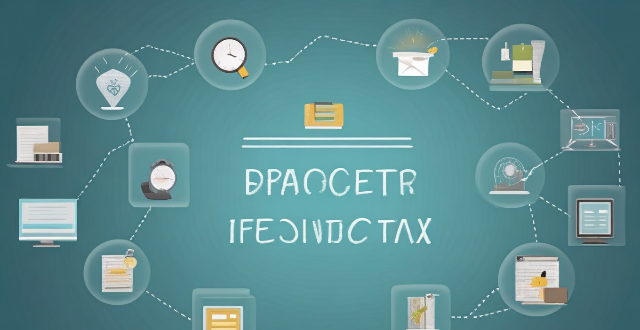
How does a carbon tax impact low-income households ?
The text discusses the impact of a carbon tax on low-income households, highlighting potential challenges such as increased cost of living and job losses, but also mentions mitigating factors like rebates and green job creation.

What initiatives can be taken to improve scientific literacy among women ?
Scientific literacy is important for making informed decisions about health, environment, and technology. Women often face barriers to accessing scientific education and resources. To improve scientific literacy among women, initiatives such as educational programs, community outreach, media representation, and policy changes can be taken. These include integrating STEM subjects into the school curriculum, offering girls-only classes, connecting young girls with female role models in STEM fields, establishing community-based science clubs for women of all ages, organizing public lectures by women scientists, conducting workshops and training sessions on various scientific topics, highlighting stories of successful women in science through media platforms, encouraging more women to pursue careers in science journalism, utilizing social media platforms to create awareness about scientific issues affecting women's lives, advocating for increased funding for educational programs and research initiatives focused on improving women's participation in STEM fields, lobbying for policies that ensure equal opportunities for women in science education and employment, and implementing mandatory gender bias training for educators and professionals working in STEM fields. By implementing these initiatives, we can create a more inclusive environment that encourages women to explore and contribute to the field of science.
![What subjects did [insert celebrity name] study in college ?](/images/3nde/d0c5972b-3f94-4446-a867-a064f066a8ad.png)
What subjects did [insert celebrity name] study in college ?
The academic pursuits of [insert celebrity name] during their college years are explored in this article. The primary field of study for the celebrity is discussed, along with any minor fields of interest and elective courses taken. Notable projects and theses completed by the celebrity are highlighted, as well as their involvement in extracurricular activities. The article also discusses the celebrity's post-college pursuits and how their education played a role in shaping their career.

How can governments promote green job creation ?
Governments can promote green job creation by investing in renewable energy, encouraging energy efficiency, developing green infrastructure, supporting education and training, and creating market incentives. This includes offering financial incentives for renewable energy investments, implementing stricter building codes, funding public transportation systems, partnering with educational institutions for skill development, and implementing a carbon tax or cap-and-trade system. These actions will not only create jobs in the sustainable sector but also contribute to a more sustainable economy and a healthier planet.

How does immigration policy affect the job market ?
Immigration policy affects the job market by increasing labor force, attracting skilled workers, and allowing unskilled immigrants to work in industries with labor shortages. This can benefit employers by providing access to a larger pool of potential employees, filling critical skill gaps, and reducing costs due to increased competition among workers. However, it also presents challenges for native-born workers such as increased competition for jobs, potential wage suppression, and concerns about cultural assimilation and language barriers. Policymakers must consider these factors when developing immigration policies that serve the interests of both employers and workers.
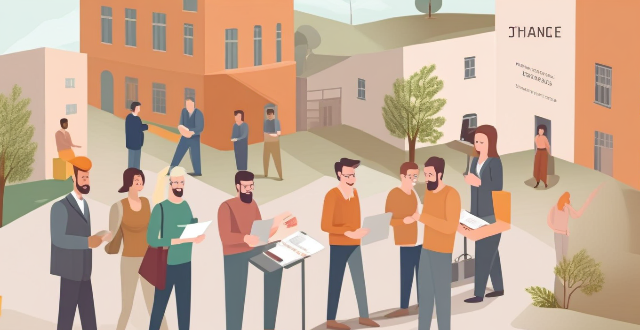
How does climate change affect job opportunities in various industries ?
Climate change has a significant impact on job opportunities across various industries. In agriculture, changes in temperature and precipitation patterns can decrease crop yields, increase pest management needs, and create demand for water management professionals. Extreme weather events can create more work for construction workers involved in rebuilding and repair efforts, while the push towards sustainable building practices creates new job opportunities in green construction and design. The shift away from fossil fuels towards renewable energy sources like wind and solar creates new jobs in manufacturing, installation, and maintenance. Demand for energy-efficient buildings and appliances leads to job opportunities in design, engineering, and installation. As investors increasingly prioritize sustainability, there is a growing need for financial professionals who specialize in green investments. The risk of climate-related disasters affects the insurance industry, leading to job opportunities in risk assessment and underwriting. Increased temperatures and changes in weather patterns can lead to the spread of diseases, creating job opportunities in public health and disease control. Climate change can exacerbate mental health issues, leading to increased demand for mental health professionals. As tourists become more environmentally conscious, there is a growing need for professionals in conservation and ecotourism. The tourism industry must adapt to changing weather patterns, leading to job opportunities in planning and management. The transition to electric vehicles and other alternative fuels creates job opportunities in manufacturing, maintenance, and infrastructure development. Efforts to make transportation infrastructure more resilient to climate impacts lead to job opportunities in engineering and construction. The need for education on climate change creates job opportunities in curriculum development, teaching, and research. As industries adapt to climate change, there is a growing demand for training programs to equip workers with the necessary skills and knowledge. Governments around the world are developing policies to address climate change, creating job opportunities in policy development, implementation, and evaluation. The increased frequency of climate-related disasters leads to job opportunities in emergency response and management.